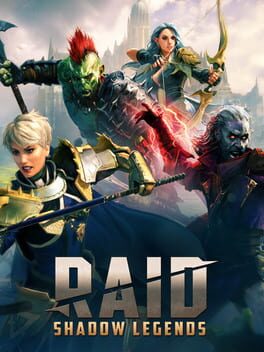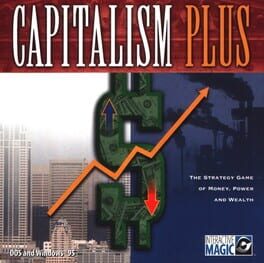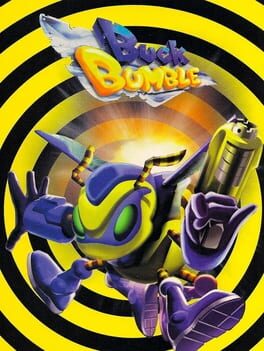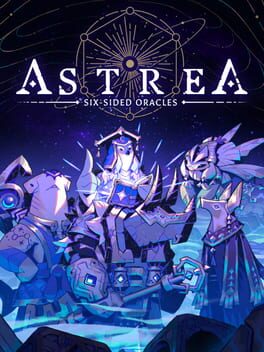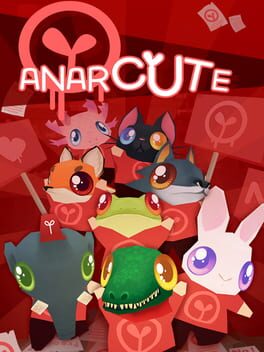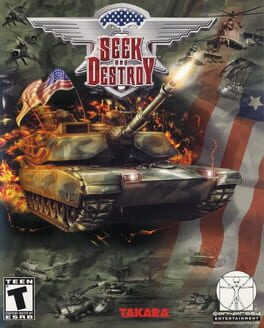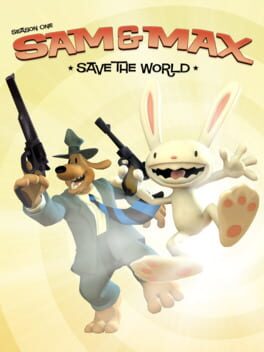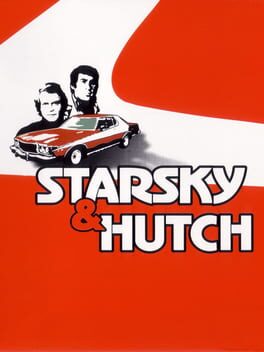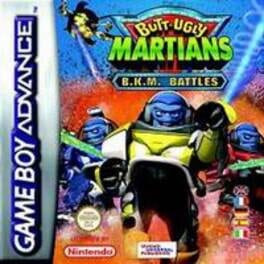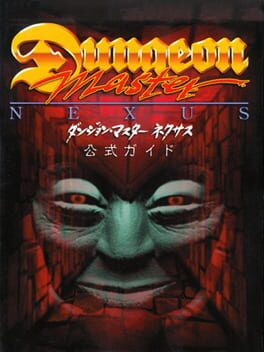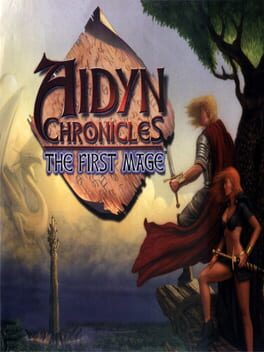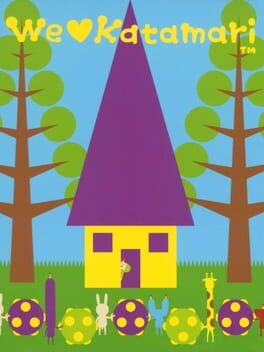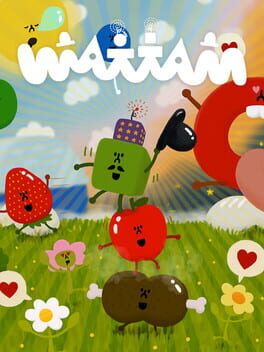2018
2016
I try to actively avoid observing video games exclusively through my ideological lens for a variety of reasons. I like Freedom Fighters, and that game's brain is fucking stupid. But I really can't talk about this game without bringing up the labor theory of value, and this simulation's fundamental failure. For such an in depth and frankly well made business simulator, the game's stark lack of focus on labor is understandable but leaves the game feeling incomplete.
Profit comes from what the capitalist is able to extract from surplus labor. Their ability to extract more profit (and by that extension, the ability to squeeze labor further) is determined by environmental and political circumstances, as well as the workforce's ability (or lack thereof) to claw back the fruits of their labor. These are not factors that this DOS game probably could have or had any interest in dealing with outside of a few minor factors, which is disappointing because the rest of the game rules (for what it is). The presentation is a corporate mid-90's look, if you insert the face icons of this game into anything else like Bauldr's Gate, it would be hilarious. Lots of balding men. The need to develop supply lines (from raw materials to distribution to the storefront) and keep on top of price trends is really fun once you get past the unreasonable learning curve. There's even a fairly competent stock simulation. The UI, for the time, does a good enough job to where I never felt like I had to fight against the game to do what I wanted. The scenarios provide a reasonable challenge, and the AI is much more competent than a lot of its 4x contemporaries like Master of Orion II or Ascendancy. There's even a solid voiced tutorial, although the game is still on the Dwarf Fortress end of accessibility.
I still haven't played the sequel, and I hope that it placed more of a focus on the labor aspect of running a conglomerate. Capitalism Plus, within its limitations, is still an interesting simulation that does what it sets out to to well.
Profit comes from what the capitalist is able to extract from surplus labor. Their ability to extract more profit (and by that extension, the ability to squeeze labor further) is determined by environmental and political circumstances, as well as the workforce's ability (or lack thereof) to claw back the fruits of their labor. These are not factors that this DOS game probably could have or had any interest in dealing with outside of a few minor factors, which is disappointing because the rest of the game rules (for what it is). The presentation is a corporate mid-90's look, if you insert the face icons of this game into anything else like Bauldr's Gate, it would be hilarious. Lots of balding men. The need to develop supply lines (from raw materials to distribution to the storefront) and keep on top of price trends is really fun once you get past the unreasonable learning curve. There's even a fairly competent stock simulation. The UI, for the time, does a good enough job to where I never felt like I had to fight against the game to do what I wanted. The scenarios provide a reasonable challenge, and the AI is much more competent than a lot of its 4x contemporaries like Master of Orion II or Ascendancy. There's even a solid voiced tutorial, although the game is still on the Dwarf Fortress end of accessibility.
I still haven't played the sequel, and I hope that it placed more of a focus on the labor aspect of running a conglomerate. Capitalism Plus, within its limitations, is still an interesting simulation that does what it sets out to to well.
1998
The ire towards this game seems very misplaced. I don't think Buck Bumble is an essential game to the story of the Nintendo 64, but there are plenty of other games with flight on the Nintendo 64 that are worse. This game's presentation is the worst aspect and probably why this game is so divisive. The enemy designs fit the theme, but the game chose to focus on the worst aspects of audio/visual design from that era of the N64 (muddy semi-realistic textures, low draw distance and a D&B soundtrack that doesn't leave much to remember), and doesn't have enough variety is any of those aspects to make up for it. The soundtrack actively detracts from the game, as it's just a constant beat over very simplistic tracks otherwise.
The rest of the game is totally fine. The flight mechanics are rudimentary, but again, they could have performed a lot worse. The only time I had issues with the hit detection were with floating mines, the rest of the game was very generous towards the player in that regard. The level objectives were easy to understand and the flow of the levels was good enough to where I didn't get lost despite their vertical size. It's on the shorter side, a blind playthrough took me about three hours, but any longer and the repetitive nature of the game would have really started to drag.
Buck Bumble isn't the worst game on the console, but it's not a game to rush out and play either. It has a unique gimmick and competent execution, it just needed a few more months in the oven to progress past that.
The rest of the game is totally fine. The flight mechanics are rudimentary, but again, they could have performed a lot worse. The only time I had issues with the hit detection were with floating mines, the rest of the game was very generous towards the player in that regard. The level objectives were easy to understand and the flow of the levels was good enough to where I didn't get lost despite their vertical size. It's on the shorter side, a blind playthrough took me about three hours, but any longer and the repetitive nature of the game would have really started to drag.
Buck Bumble isn't the worst game on the console, but it's not a game to rush out and play either. It has a unique gimmick and competent execution, it just needed a few more months in the oven to progress past that.
I went into this Astera with a very specific concern, one that was alleviated within ten minutes of playing. It's with great relief that I can say, the dice are not just dice.
If you have spent any substantial time with Slay the Spire, this game is an easy day one purchase. I was initially worried that the game would have the same issue that Dicey Dungeons had, where manipulation of the dice was the end all, be all and the dice themselves were just boring d6s. All the characters have a varied pool of dice drafted throughout the game that not only sufficiently delivers a level of interesting decision making and "build around" opportunities, the way they're upgraded and the sense of risk/reward actually surpasses that of StS. There are dice you will find in this game that will kill you on the spot unless you properly build around them to take advantage of their powerful effects. The risk taking elements of the game are coupled with so many ways to mitigate that risk, that getting dice screwed is rare and doesn't feel nearly as bad as some dud hands from StS. A die might have a powerful effect on half the sides, and the other half might actively damage you. You don't have to take that die at all, if you'd prefer a safer option at drafting, but if you do there's enough re-rolls and damage mitigation to where stepping on the gas is encouraged. It doesn't feel like drafting "Take your entire max health's worth of damage to draw 2" is a bad idea, it's an opportunity.
There are also party members/pets called "Sentinels" that also feel like a meaningful iteration on the deckbuidling rougelike formula. At worst, they increase your raw number total and make some turn sequences handle smoother. At best, they're another outlet for the player to build and draft around. Most are easy to slot into runs, because they don't clog up your deck and most have generically beneficial effects. And, like the dice, there's opportunities to improve and customize them further. The way damage is handled through the purification system gives the game a solid identity of its own and allows for even more ways to bend the game through drafting. As good of a game mechanic as it is, I think thematically it's more interesting. I really appreciated that there was an attempt at a nonviolent, or at least less hostile approach to conflict resolution in a deckbuilder compared to bonking a goblin over the head with a sword.
The presentation of the game is also killer, totally blindsided by how nice this looks and sounds for an indie title. Obviously, the character designs look great and the visual direction of the game helps it stand out from its peers, but the soundtrack deserves a special mention. For these types of games, I might do one run with the soundtrack just to see what it's like and then put on my own music/a podcast after. I actively avoided that through my playthroughs of this game. If you like the Final Fantasy XIII soundtrack, Rafael Langoni's gonna take you places.
I doubt that further playthroughs are going to sour my opinion of the game unless there's just a total lack of endgame. There is meta-progression, but the "here's more ways to interact with the game" type, not the "you have to fail 20 runs until you get the stats to make the game not a slog" type, and that's been going well enough after I unlocked the rest of the cast.
God, I hope this game blows up and the devs get the credit they deserve. Nothing feels better than being blindsided by a really good game.
If you have spent any substantial time with Slay the Spire, this game is an easy day one purchase. I was initially worried that the game would have the same issue that Dicey Dungeons had, where manipulation of the dice was the end all, be all and the dice themselves were just boring d6s. All the characters have a varied pool of dice drafted throughout the game that not only sufficiently delivers a level of interesting decision making and "build around" opportunities, the way they're upgraded and the sense of risk/reward actually surpasses that of StS. There are dice you will find in this game that will kill you on the spot unless you properly build around them to take advantage of their powerful effects. The risk taking elements of the game are coupled with so many ways to mitigate that risk, that getting dice screwed is rare and doesn't feel nearly as bad as some dud hands from StS. A die might have a powerful effect on half the sides, and the other half might actively damage you. You don't have to take that die at all, if you'd prefer a safer option at drafting, but if you do there's enough re-rolls and damage mitigation to where stepping on the gas is encouraged. It doesn't feel like drafting "Take your entire max health's worth of damage to draw 2" is a bad idea, it's an opportunity.
There are also party members/pets called "Sentinels" that also feel like a meaningful iteration on the deckbuidling rougelike formula. At worst, they increase your raw number total and make some turn sequences handle smoother. At best, they're another outlet for the player to build and draft around. Most are easy to slot into runs, because they don't clog up your deck and most have generically beneficial effects. And, like the dice, there's opportunities to improve and customize them further. The way damage is handled through the purification system gives the game a solid identity of its own and allows for even more ways to bend the game through drafting. As good of a game mechanic as it is, I think thematically it's more interesting. I really appreciated that there was an attempt at a nonviolent, or at least less hostile approach to conflict resolution in a deckbuilder compared to bonking a goblin over the head with a sword.
The presentation of the game is also killer, totally blindsided by how nice this looks and sounds for an indie title. Obviously, the character designs look great and the visual direction of the game helps it stand out from its peers, but the soundtrack deserves a special mention. For these types of games, I might do one run with the soundtrack just to see what it's like and then put on my own music/a podcast after. I actively avoided that through my playthroughs of this game. If you like the Final Fantasy XIII soundtrack, Rafael Langoni's gonna take you places.
I doubt that further playthroughs are going to sour my opinion of the game unless there's just a total lack of endgame. There is meta-progression, but the "here's more ways to interact with the game" type, not the "you have to fail 20 runs until you get the stats to make the game not a slog" type, and that's been going well enough after I unlocked the rest of the cast.
God, I hope this game blows up and the devs get the credit they deserve. Nothing feels better than being blindsided by a really good game.
2016
There's a review on this website by RealmW;
"Whatever redeemable qualities Anarcute has (already few and far between) are completely lost within the void of its intensely cynical non-ideology. Revolutionary aestheticism, combined with a total refusal to engage with the subject of those aesthetics, results in a text with nothing to say--doing no favors to the foundation laid by a shallow and frequently frustrating gameplay loop."
These criticisms are valid, and at one point I did hold basically the same view (I'm not trying to rag on this user at all), but I have a hard time getting upset at this game for two primary reasons:
1) It would imply that there is a consumption of media that would have meaningful political impact. Disco's been out for years, Mother 3 has a character in Smash Bros, the idea that there could be some sort of revolutionary "game", especially such a singular experience like all the two above and Anarcute isn't a stance I hold.
2) That critique made more sense within the 2016 context of a """left""" that's influx of new believers came from western social democratic movements and were largely unfamiliar with anti-capitalist ideology. That's not me talking shit, I was a Bernie baby myself. I think within the past seven years, the amount of resources and general perception of these ideological movements buffers out whatever ideological drift the 2016 game "Anarcute" could have pulled off.
I bring these up, not as a means to attack that user, but to pad out the review of this otherwise very average game. I wanted something chaotic, like Katamari Damacy, and instead the game focused way too hard on specific level gimmicks instead of "you control the therian wave as they burn cop cars". It's commentary is so shallow that it comes off as totally inoffensive, and the soundtrack also leaves just as much of a mark. The minor conversation around this game is much more interesting than the end product.
"Whatever redeemable qualities Anarcute has (already few and far between) are completely lost within the void of its intensely cynical non-ideology. Revolutionary aestheticism, combined with a total refusal to engage with the subject of those aesthetics, results in a text with nothing to say--doing no favors to the foundation laid by a shallow and frequently frustrating gameplay loop."
These criticisms are valid, and at one point I did hold basically the same view (I'm not trying to rag on this user at all), but I have a hard time getting upset at this game for two primary reasons:
1) It would imply that there is a consumption of media that would have meaningful political impact. Disco's been out for years, Mother 3 has a character in Smash Bros, the idea that there could be some sort of revolutionary "game", especially such a singular experience like all the two above and Anarcute isn't a stance I hold.
2) That critique made more sense within the 2016 context of a """left""" that's influx of new believers came from western social democratic movements and were largely unfamiliar with anti-capitalist ideology. That's not me talking shit, I was a Bernie baby myself. I think within the past seven years, the amount of resources and general perception of these ideological movements buffers out whatever ideological drift the 2016 game "Anarcute" could have pulled off.
I bring these up, not as a means to attack that user, but to pad out the review of this otherwise very average game. I wanted something chaotic, like Katamari Damacy, and instead the game focused way too hard on specific level gimmicks instead of "you control the therian wave as they burn cop cars". It's commentary is so shallow that it comes off as totally inoffensive, and the soundtrack also leaves just as much of a mark. The minor conversation around this game is much more interesting than the end product.
2002
Choro-Q, for the good ol' days after 9/11.
This game rips, it was my first exposure to the Choro-Q series and while not indicative of the rest of the franchise, holds up in its own right. The tank customization isn't as in depth as something like Armored Core, but instead focuses on upgrades being more meaningful impacts to gameplay, and the individual tanks themselves being the toybox that you're supposed to sift through. The game looks and sounds like a budget title, but it's not as egregiously ugly as some of the earlier PS2 library, and the soundtrack feels like someone tried and is fitting for the setting.
The flight and aquatic elements of the game sure do exist. In a way, I'm glad that the game does give you that freedom of movement, but the game has no real vertical level design so it feels like there's just a part that you can equip to enable moon jump. They're mostly used for gimmicky missions, which sometimes get either tedious like the escort mission, or feel like they can be trivialized by properly equipping your tank. Damage is finicky and unbalanced in the sense that hits either do five percent of a target's health, or one shot them (including to your own tank, although slightly less swingy), but it ends up being to the game's benefit as the pacing of missions doesn't slog. The pacing of the game in general, even if you stop to do all the extra side missions and fights, is really good and the entire campaign feels fleshed out without being padded.
Seek and Destroy doesn't escape the boundaries of a budget title, but it's a very easy sit. Effort was put into this game that probably never sold for more than $20. It's a great pallet cleanser after clearing a longer RPG while still having enough meat on its bones to stay engaging.
This game rips, it was my first exposure to the Choro-Q series and while not indicative of the rest of the franchise, holds up in its own right. The tank customization isn't as in depth as something like Armored Core, but instead focuses on upgrades being more meaningful impacts to gameplay, and the individual tanks themselves being the toybox that you're supposed to sift through. The game looks and sounds like a budget title, but it's not as egregiously ugly as some of the earlier PS2 library, and the soundtrack feels like someone tried and is fitting for the setting.
The flight and aquatic elements of the game sure do exist. In a way, I'm glad that the game does give you that freedom of movement, but the game has no real vertical level design so it feels like there's just a part that you can equip to enable moon jump. They're mostly used for gimmicky missions, which sometimes get either tedious like the escort mission, or feel like they can be trivialized by properly equipping your tank. Damage is finicky and unbalanced in the sense that hits either do five percent of a target's health, or one shot them (including to your own tank, although slightly less swingy), but it ends up being to the game's benefit as the pacing of missions doesn't slog. The pacing of the game in general, even if you stop to do all the extra side missions and fights, is really good and the entire campaign feels fleshed out without being padded.
Seek and Destroy doesn't escape the boundaries of a budget title, but it's a very easy sit. Effort was put into this game that probably never sold for more than $20. It's a great pallet cleanser after clearing a longer RPG while still having enough meat on its bones to stay engaging.
Two major things having revisited Season 1 recently:
1) The overall plots themselves aren't the funniest setups and are very much of their time. The individual bits and interactions carry the game on their back and hold up well today. This is the earliest Telltale game I really enjoy, and there's still growing pains to overcome both in terms of plot structure and weird writing kinks. Sam and Max are such good characters, and the devs knew how to use them to crank out 6 decent episodes. The quality is inconsistent, but even the bad episodes are still worth the ride just to hear these two characters bounce off each other.
2) There's no heterosexual explanation for half this game.
1) The overall plots themselves aren't the funniest setups and are very much of their time. The individual bits and interactions carry the game on their back and hold up well today. This is the earliest Telltale game I really enjoy, and there's still growing pains to overcome both in terms of plot structure and weird writing kinks. Sam and Max are such good characters, and the devs knew how to use them to crank out 6 decent episodes. The quality is inconsistent, but even the bad episodes are still worth the ride just to hear these two characters bounce off each other.
2) There's no heterosexual explanation for half this game.
2003
The final level of this game was so fucking annoying and needlessly difficult compared to the rest of the game that it stuck in my mind for 20 years. The rest of the game is an uninspired Driver clone featuring an IP that nobody in the year of our lord 2003 could have possibly cared about.
That final level though, an absolute nadir. I looked up the final level again, just to make sure I wasn't just a stupid kid. This shit looked frustrating that it gives the game some sort of hook in my mind. It's like a fishing hook, gouging and causing a seizure, but it's better to be bad than boring (like the rest of the game).
That final level though, an absolute nadir. I looked up the final level again, just to make sure I wasn't just a stupid kid. This shit looked frustrating that it gives the game some sort of hook in my mind. It's like a fishing hook, gouging and causing a seizure, but it's better to be bad than boring (like the rest of the game).
Underwhelming on almost every level. Nothing about this game comes off as incompetent or compromised to the point of making the game unplayable, but an entirely unessential licensed game on the GBA.
I wish the game was worse. These Martians aren't even that ugly. If I had to rate their looks, I'd probably give them the same score as their game.
I wish the game was worse. These Martians aren't even that ugly. If I had to rate their looks, I'd probably give them the same score as their game.
2011
For me, video games are a social experience/lubricant first, and then an artistic medium with strengths not found in books/movies/etc, and then a source of comfort. There are games that I don't think are fantastic or that I don't actively play, but are games that I enjoy existing because I can connect with other people. We can have a chat and I can see what they value in media and we can connect from there, it's a nice time. The other day, I stayed like 30 min after my shift at work ended to talk to a coworker about Style Savvy. Dark Souls is a 0/5 game to me for how alienating of an experience it's been since this game blew up.
The presentation of the game doesn't do any favors. I don't like the visual direction of the game. I think the soundtrack is largely forgettable. I think the sound design in general is passable without leaving any notable impression. The enemy designs feel very bland, or what a teenager that just read the Golden Age arc of Berserk and didn't get it thinks is cool. It'd doubly frustrating because, even when they were less technically proficient, Fromsoft's audio and visual output in games like Lost Kingdoms or Armored Core resonated with me for years after I played through them.
The story of "you're a stranger in a dying world and any information you want has to be clawed out of the dead hands of its previous residents" is another aspect where, having played their previous backlog, it felt like EA version of a Fromsoft game. All of this atmospheric worldbuilding is in service to a stock dark fantasy setting and it's really hard not to compare those aspects to games that used similar approaches, but were alien enough to make the act of piecing everything together a unique experience, like Evergrace. So what you're left with is a largely empty world filled with NPCs that's hint of something more interesting.
Nothing about the gameplay works for me. The level design is one of those things where I'll hear people complain about basically every part of the game, or I'll watch them play the game and they'll just have this awful scowl on their face if it isn't a replaying of the game, but I get instant pushback if I point out that most of the "difficulty" either comes down to trial and error sections that lose all tension once you know the specific way the game's going to mess with you, or they're disasters like Blight town. I know they can have levels with decent flow, Bloodborne's level design largely (not always) avoided sections of the game that come to a screeching halt due to annoying enemy placement or stupid environmental gimmicks. The most praise I can give the level design is the interconnected nature of the game, but that's not a feature that Dark Souls does better than most games with similar structure, nor did I find it preferable to the menu system of Demon Souls.
The combat's way too limited to keep my attention. Weapons, outside of specific late game additions, have the same static moveset regardless of player or gear progression, and that moveset's too limited to warrant much outside of either "smack and run off to wait for stamina if you're unsure about the fight" or "aggressively position yourself to trivialize the encounter because all the tells are 90+ frames long". Player vs Player degrading into smacking your opponent into chugging potions is a telling sign. Magic might be the one saving grace of the game, I think access to these strong and possibly overpowered (they're not in Dark Souls) abilities in a RPG like this can change the way a playthrough is experienced and is cool, but still feels like a major step back from how it was implemented in Demon Souls, like they were worried about the player having too much fun and brought it into the same bland line as everything else.
The RPG mechanics in this game are just as dull. I do on some level appreciate how your progress isn't strictly tied to better gear, and if you find something that looks better than the most "optimal" piece of equipment, you can just keep wearing it with very little detriment to the overall experience. It does mean that every piece of gear I came across felt like either dull numerical increases or outright vendor trash, and the sense of progression that usually comes along with RPGs like this was totally lost. The souls system is in a similar boat. You're just increasing numbers with soul investment, you're not going to be able to spend your way out of a fight's gimmick. Death has less "meaning" when the thousands of souls you're supposed to be worried about dropping when banking up for an upgrade could be lost isn't actually that big of a deal. It deflates a lot of the progression or tension.
The community around the game is also a strong mark against the game. I have good friends of mine who really enjoy this game, even people who don't usually play a ton of video games. I don't mind those people enjoying Dark Souls, I like the Red Hot Chili Peppers, we can both enjoy some bad media. The diehard "my main interaction with this medium is Dark Souls and I have 2000+ hours in the series collectively" fans are some of the most universally repulsive and mean terminally online freaks I've ever had the displeasure of dealing with, and I played League of Legends for 8 years. Skeevy people with a laundry list of accusations if you're willing to hang around those circles for longer than a couple of hours.
If this game didn't become one of the most popular RPGs of the 2010's, it probably just gets a 2/5 and I forget the game exists. This game has influence. This game is the "Oh, I don't play hard games other than Dark Souls" option for a generation of people. It's influence on FromSoft outside of "it payed the bills" was a malignant one and we only recently just got out from under the shadow this game cast with AC6. There are games that wouldn't learn from this game's mistakes, but quadruple down on them, like the myriad of largely awful Souls clones that came out in the following years. It defined difficulty in video games going forward, not as a skill set that has to be developed and iterated upon like in fighting or rhythm games, not as a means to push yourself and compare your progress to your peers like shmups, but as trial and error, and if you don't get it then that's a personal failing on your end. I've ran into so many people in real life that play video games, and when I ask them what they've been playing lately, they say it's Dark Souls and I have to politely dance around the fact that I think this game isn't worth the disk it was printed on, or the bandwith required to download it off of steam.
My favorite thing about Dark Souls is that it probably kept a lot of people at FromSoft employed for years to come. Outside of the barest fact that "it existed and people didn't lose their jobs", I can't think of anything else I enjoy about this game.
The presentation of the game doesn't do any favors. I don't like the visual direction of the game. I think the soundtrack is largely forgettable. I think the sound design in general is passable without leaving any notable impression. The enemy designs feel very bland, or what a teenager that just read the Golden Age arc of Berserk and didn't get it thinks is cool. It'd doubly frustrating because, even when they were less technically proficient, Fromsoft's audio and visual output in games like Lost Kingdoms or Armored Core resonated with me for years after I played through them.
The story of "you're a stranger in a dying world and any information you want has to be clawed out of the dead hands of its previous residents" is another aspect where, having played their previous backlog, it felt like EA version of a Fromsoft game. All of this atmospheric worldbuilding is in service to a stock dark fantasy setting and it's really hard not to compare those aspects to games that used similar approaches, but were alien enough to make the act of piecing everything together a unique experience, like Evergrace. So what you're left with is a largely empty world filled with NPCs that's hint of something more interesting.
Nothing about the gameplay works for me. The level design is one of those things where I'll hear people complain about basically every part of the game, or I'll watch them play the game and they'll just have this awful scowl on their face if it isn't a replaying of the game, but I get instant pushback if I point out that most of the "difficulty" either comes down to trial and error sections that lose all tension once you know the specific way the game's going to mess with you, or they're disasters like Blight town. I know they can have levels with decent flow, Bloodborne's level design largely (not always) avoided sections of the game that come to a screeching halt due to annoying enemy placement or stupid environmental gimmicks. The most praise I can give the level design is the interconnected nature of the game, but that's not a feature that Dark Souls does better than most games with similar structure, nor did I find it preferable to the menu system of Demon Souls.
The combat's way too limited to keep my attention. Weapons, outside of specific late game additions, have the same static moveset regardless of player or gear progression, and that moveset's too limited to warrant much outside of either "smack and run off to wait for stamina if you're unsure about the fight" or "aggressively position yourself to trivialize the encounter because all the tells are 90+ frames long". Player vs Player degrading into smacking your opponent into chugging potions is a telling sign. Magic might be the one saving grace of the game, I think access to these strong and possibly overpowered (they're not in Dark Souls) abilities in a RPG like this can change the way a playthrough is experienced and is cool, but still feels like a major step back from how it was implemented in Demon Souls, like they were worried about the player having too much fun and brought it into the same bland line as everything else.
The RPG mechanics in this game are just as dull. I do on some level appreciate how your progress isn't strictly tied to better gear, and if you find something that looks better than the most "optimal" piece of equipment, you can just keep wearing it with very little detriment to the overall experience. It does mean that every piece of gear I came across felt like either dull numerical increases or outright vendor trash, and the sense of progression that usually comes along with RPGs like this was totally lost. The souls system is in a similar boat. You're just increasing numbers with soul investment, you're not going to be able to spend your way out of a fight's gimmick. Death has less "meaning" when the thousands of souls you're supposed to be worried about dropping when banking up for an upgrade could be lost isn't actually that big of a deal. It deflates a lot of the progression or tension.
The community around the game is also a strong mark against the game. I have good friends of mine who really enjoy this game, even people who don't usually play a ton of video games. I don't mind those people enjoying Dark Souls, I like the Red Hot Chili Peppers, we can both enjoy some bad media. The diehard "my main interaction with this medium is Dark Souls and I have 2000+ hours in the series collectively" fans are some of the most universally repulsive and mean terminally online freaks I've ever had the displeasure of dealing with, and I played League of Legends for 8 years. Skeevy people with a laundry list of accusations if you're willing to hang around those circles for longer than a couple of hours.
If this game didn't become one of the most popular RPGs of the 2010's, it probably just gets a 2/5 and I forget the game exists. This game has influence. This game is the "Oh, I don't play hard games other than Dark Souls" option for a generation of people. It's influence on FromSoft outside of "it payed the bills" was a malignant one and we only recently just got out from under the shadow this game cast with AC6. There are games that wouldn't learn from this game's mistakes, but quadruple down on them, like the myriad of largely awful Souls clones that came out in the following years. It defined difficulty in video games going forward, not as a skill set that has to be developed and iterated upon like in fighting or rhythm games, not as a means to push yourself and compare your progress to your peers like shmups, but as trial and error, and if you don't get it then that's a personal failing on your end. I've ran into so many people in real life that play video games, and when I ask them what they've been playing lately, they say it's Dark Souls and I have to politely dance around the fact that I think this game isn't worth the disk it was printed on, or the bandwith required to download it off of steam.
My favorite thing about Dark Souls is that it probably kept a lot of people at FromSoft employed for years to come. Outside of the barest fact that "it existed and people didn't lose their jobs", I can't think of anything else I enjoy about this game.
1998
Considering the route that games like The Llylgamyn Saga were taking when adapting classic PC RPGs to the Saturn, there's a fun novelty in Dungeon Master Nexus's remix approach. It could have been a straight translation of the previous games with a facelift like was done with the Wizardry series, but Nexus doesn't "replace" the older versions of the game.
Graphically, the game looks nice and clean, if not a bit unambitious. While it feels less monotonous than previous DMs, the dungeon design itself could have used more variety. The new portraits for the returning cast looks great, and in my opinion their design direction blows the original out of the water, even with the limitations of the console taken into account. The monster designs are faithful to the original, and aren't as clunky as they could have been given the Saturn's track record. The sound design is also good, but not great. The music, when the game has it, is really solid but there are large patches of time without any sounds but menu blips and the occasional shuffling of an enemy.
The main blow against this game is just the format and flaws inherit with the concept of "Dungeon Master of the Saturn". Learning how to navigate the menus and interact with the world is a learning experience that took me half of my relatively short play-through to get through. It's not that menu navigation is done poorly. Once it clicks, you realize this was probably the best they could have done given the limitations of a controller, and if anything elements like the spell wheel improve over previous ports like the SNES version, but I still wish I was playing the game on mouse and keyboard.
Damage seems to be balanced around the assumption that the player is going to stand right next to the enemies in the dungeon and hack away, instead of doing the Kings Field "swipe and back off until the gauge fills". You have enough mobility and time to preform the poke and retreat dance, which trivializes most fights. I still prefer that to having to sit there and eat a ton of damage every fight, and there are specific encounters where you have to change up your tactics from "Secret of Mana on cough medicine", but it does result in combat that doesn't get the blood pumping for the most part. I didn't lose a single party member in my first playthrough.
There's a hunger and thirst system in the game that needs to be kept up on. The bars drain so slowly and food is so abundant that this never impeded my progress even late into the game. Again, glad there aren't more reason to break up the flow of the game, but if it's so half baked why keep it in the game in the first place?
Most of my thoughts regarding this game have similar cadence. If they changed elements of the game not to be a cakewalk, they'd be a chore to deal with. The game had these specific changes in mind, and was made by diehard fans of the original who didn't want to change up the formula. I never got frustrated with the game, and even having gotten lost frequently the game didn't take more than 12 hours. If the game was able to move at a faster speed and I knew where I was going, that time could easily be cut in half. For a game that incentives replaying through with different party members, I don't think the game has bad pacing or performance.
Nexus is a jenga tower, pull any block out of place and this falls in upon itself. Made by people who didn't understand what made the original tick, or people unfamiliar with console RPGs this game would have been a slog. As it is, it was a relaxing and enjoyable dungeon crawler that doesn't outstay its welcome, and is a fitting tribute to the classic RPG. Also, HRT Shadow from Final Fantasy 6 is in the game, I got a lot of mileage out of that.
Graphically, the game looks nice and clean, if not a bit unambitious. While it feels less monotonous than previous DMs, the dungeon design itself could have used more variety. The new portraits for the returning cast looks great, and in my opinion their design direction blows the original out of the water, even with the limitations of the console taken into account. The monster designs are faithful to the original, and aren't as clunky as they could have been given the Saturn's track record. The sound design is also good, but not great. The music, when the game has it, is really solid but there are large patches of time without any sounds but menu blips and the occasional shuffling of an enemy.
The main blow against this game is just the format and flaws inherit with the concept of "Dungeon Master of the Saturn". Learning how to navigate the menus and interact with the world is a learning experience that took me half of my relatively short play-through to get through. It's not that menu navigation is done poorly. Once it clicks, you realize this was probably the best they could have done given the limitations of a controller, and if anything elements like the spell wheel improve over previous ports like the SNES version, but I still wish I was playing the game on mouse and keyboard.
Damage seems to be balanced around the assumption that the player is going to stand right next to the enemies in the dungeon and hack away, instead of doing the Kings Field "swipe and back off until the gauge fills". You have enough mobility and time to preform the poke and retreat dance, which trivializes most fights. I still prefer that to having to sit there and eat a ton of damage every fight, and there are specific encounters where you have to change up your tactics from "Secret of Mana on cough medicine", but it does result in combat that doesn't get the blood pumping for the most part. I didn't lose a single party member in my first playthrough.
There's a hunger and thirst system in the game that needs to be kept up on. The bars drain so slowly and food is so abundant that this never impeded my progress even late into the game. Again, glad there aren't more reason to break up the flow of the game, but if it's so half baked why keep it in the game in the first place?
Most of my thoughts regarding this game have similar cadence. If they changed elements of the game not to be a cakewalk, they'd be a chore to deal with. The game had these specific changes in mind, and was made by diehard fans of the original who didn't want to change up the formula. I never got frustrated with the game, and even having gotten lost frequently the game didn't take more than 12 hours. If the game was able to move at a faster speed and I knew where I was going, that time could easily be cut in half. For a game that incentives replaying through with different party members, I don't think the game has bad pacing or performance.
Nexus is a jenga tower, pull any block out of place and this falls in upon itself. Made by people who didn't understand what made the original tick, or people unfamiliar with console RPGs this game would have been a slog. As it is, it was a relaxing and enjoyable dungeon crawler that doesn't outstay its welcome, and is a fitting tribute to the classic RPG. Also, HRT Shadow from Final Fantasy 6 is in the game, I got a lot of mileage out of that.
Aidyn Chronicles is a game I struggled to love for a long time, and a game that's story is more interesting on paper than in practice. H2O, the game's devs previous game was Tetrisphere, a game that I enjoyed but admittedly ran very poorly. Their next title was one of the last games released for the N64. It's not only one of four dedicated RPGs released in the west, it veers closer to a CRPG than Quest 64, Paper Mario or Ogre Battle. The only console comparison I could make would be the Lunatic Dawn ports to the PlayStation, or other PlayStation/Saturn ports of pre-existing CRPGs.
It attempted to shove a full Bioware/Black Isle RPG into a N64 cart, with character stats/classes, party building and a wide cast of NPCs. In terms of combat, these aren't elements that are executed poorly. Different classes and builds have a very real impact on how well fights play out. The gear that you pick up doesn't just translate into pure stat advantages, it changes the way that your characters play. The world feels "big" in the sense that there's a lot of ground to cover, and there's a decently staffed roster of NPCs. It's an experience that's unlike most console RPGs released up until that point, and one that's so poorly executed that it manages to cancel out any goodwill it might have earned swinging for the bleachers.
The game isn't incomplete in the same way that Quest 64 is incomplete, but the game is a buggy and optimized slog. Clipping through floors/staircases is a common occurrence. The nonlinear or more open ended elements of the game might encourage sequence breaking. These usually lead to save-ending bugs or, if you're lucky, just a crash. Multiple spells either flat out don't work, or have the opposite intended effect (like the stamina "buff" reducing your overall stamina).
In terms of performance, the game runs worse than Tetrisphere's laggiest points, with regular frame dips when the game has to render more than five feet in front of the main character. I'm not sure why the game runs this poorly either, this is one of the ugliest games on the Nintendo 64. The art direction isn't doing any favors, but the game's blurry, compressed look stood out at the time of its release, and only got worse with age. I was thinking how to describe the music as well, and I couldn't come up with anything other than "it fucking blows." It's not bad in a bland way, it's bad in a very lazy but distinct way, jarring to the point where I had to mute the game most of the time.
The combat itself, even when it does work, is crippled by the speed of fights. The pace is glacial and even minor encounters can take a full five minutes. Normal spell animations feel more egregious than anything Square was doing at the time. Earlier, I praised the game in the sense that there are meaningful abilities and differences between classes. Most of those meaningful abilities are either crowd control or defensive buffs. The game is balanced around these in such a way that trying to ignore them will make the early game onward much harder. It's focus on them only drags out combat even longer in a game that already had a terminal speed issue.
All of this could have been, if not acceptable, an evil I'd be willing to put up with if the story was interesting. Aidyn Chronicles's biggest flaw is that the story is bland and boring at best, and incomprehensible at worst. Characters aren't developed well, when they do bother to develop them. The worldbuilding "feels" like standard high fantasy from around the time, but it's hard to tell because the prose of this game feels machine translated. Motivations and characterization feels just as smothered in Vaseline as the graphics. Trying to comprehend what a conversation's impact on the overall story is requires constant effort. It even sets up sequels that never happened (and upon retrospect probably were never going to happen given the context in which this game released), so even if the Bethesda level writing resonated with you somehow, you're going to be left holding the bag in terms of narrative.
The biggest praise I could have given Aidyn Chronicles was its ambition, but I don't think there's anything ambitious in its narrative that warrants sitting through the game itself. There's a modding scene that's fleshed out the gameplay and if that interested you, you should track down those romhacks. For everyone else, this is an easy skip. It's the worst RPG on the N64, only saved by it's relative novelty.
It attempted to shove a full Bioware/Black Isle RPG into a N64 cart, with character stats/classes, party building and a wide cast of NPCs. In terms of combat, these aren't elements that are executed poorly. Different classes and builds have a very real impact on how well fights play out. The gear that you pick up doesn't just translate into pure stat advantages, it changes the way that your characters play. The world feels "big" in the sense that there's a lot of ground to cover, and there's a decently staffed roster of NPCs. It's an experience that's unlike most console RPGs released up until that point, and one that's so poorly executed that it manages to cancel out any goodwill it might have earned swinging for the bleachers.
The game isn't incomplete in the same way that Quest 64 is incomplete, but the game is a buggy and optimized slog. Clipping through floors/staircases is a common occurrence. The nonlinear or more open ended elements of the game might encourage sequence breaking. These usually lead to save-ending bugs or, if you're lucky, just a crash. Multiple spells either flat out don't work, or have the opposite intended effect (like the stamina "buff" reducing your overall stamina).
In terms of performance, the game runs worse than Tetrisphere's laggiest points, with regular frame dips when the game has to render more than five feet in front of the main character. I'm not sure why the game runs this poorly either, this is one of the ugliest games on the Nintendo 64. The art direction isn't doing any favors, but the game's blurry, compressed look stood out at the time of its release, and only got worse with age. I was thinking how to describe the music as well, and I couldn't come up with anything other than "it fucking blows." It's not bad in a bland way, it's bad in a very lazy but distinct way, jarring to the point where I had to mute the game most of the time.
The combat itself, even when it does work, is crippled by the speed of fights. The pace is glacial and even minor encounters can take a full five minutes. Normal spell animations feel more egregious than anything Square was doing at the time. Earlier, I praised the game in the sense that there are meaningful abilities and differences between classes. Most of those meaningful abilities are either crowd control or defensive buffs. The game is balanced around these in such a way that trying to ignore them will make the early game onward much harder. It's focus on them only drags out combat even longer in a game that already had a terminal speed issue.
All of this could have been, if not acceptable, an evil I'd be willing to put up with if the story was interesting. Aidyn Chronicles's biggest flaw is that the story is bland and boring at best, and incomprehensible at worst. Characters aren't developed well, when they do bother to develop them. The worldbuilding "feels" like standard high fantasy from around the time, but it's hard to tell because the prose of this game feels machine translated. Motivations and characterization feels just as smothered in Vaseline as the graphics. Trying to comprehend what a conversation's impact on the overall story is requires constant effort. It even sets up sequels that never happened (and upon retrospect probably were never going to happen given the context in which this game released), so even if the Bethesda level writing resonated with you somehow, you're going to be left holding the bag in terms of narrative.
The biggest praise I could have given Aidyn Chronicles was its ambition, but I don't think there's anything ambitious in its narrative that warrants sitting through the game itself. There's a modding scene that's fleshed out the gameplay and if that interested you, you should track down those romhacks. For everyone else, this is an easy skip. It's the worst RPG on the N64, only saved by it's relative novelty.
2005
I'm not a nostalgic person when it comes to game preferences, or just in general. 2005 was the worst year of my life and most media from that time fills me with a visceral disgust. With that being said, We Love Katamari is one of my favorite games of all time despite a severe handicap. This game is going to give you a good time, or burn out your PS2's disc lens trying.
The soundtrack is self-evidently great, even better than the first game and the first game's soundtrack is a contender for some of the best video game music I've ever heard. It's not just that the main stage tracks are varied and fitting of the atmosphere. The little piano jingle at the beginning of the game, Overture II, goes harder than most game's OSTs and it absolutely doesn't have to. The sound effects are fitting of how weird this game is, and I don't think there's any improvements I'd want to be made.
Graphically, it's not a leap from the first game, but it didn't have to be. It's a chaotic mess, but you never have issues reading what's happening on screen, and the visual direction of some of the stages, especially the gimmick ones adds more variety than the first game. For a Playstation 2 game, it looks fantastic and it's telling that the art style was mostly kept in tact for the remake, not much to fix outside of scaling up the resolution.
The King of All Cosmo's story is relatively simple and melodramatic for the sake of humor, but also played just straight enough to give this comedic character a meaningful arc that I got invested in. The flashback "plot" tying your progress through the game together could have been more comedic cut scenes like the original, but everything in this game is executed with such competence that I cared about the arrogant drunk and his connection with his father.
The gameplay introduces a few quality of life improvements over the original game, like less annoying collision physics and a better camera. On paper, the little tweaks this game does to the original's formula don't seem like they'd make a big difference, but they eliminated almost all frustration that I had from the original game. The stages have more of a gimmick focus, but not in a way that I found distracted from the core focus of the gameplay, and more traditional stages still existed. The game's amount of cousins and presents gives the game a ton of replayability, and I could see other people getting burnt out by the collection aspect of the game, that just never happened to me. If I start a fresh playthrough of We Love Katamari, it's easy for me to devote the next couple of days getting everything/going for larger planets.
I just have such a nice time playing this game. I'm very picky when it comes to video game humor, and all the bits in this game land like a Season 7 Simpsons episode. It's a loud and chaotic game, without coming off as obnoxious. I find the game really relaxing despite it's concept. We Love Katamari puts me in a better mood in a way that even games I'd say I like better can't. I think this game's one of the most sublime releases of the 6th generation. It's one of those games you can recommend to people who haven't touched video games before, and the most jaded brain-poisoned fans on the medium. One of the highest Smiles Per Minute pieces of media I've ever had the joy to play through.
The soundtrack is self-evidently great, even better than the first game and the first game's soundtrack is a contender for some of the best video game music I've ever heard. It's not just that the main stage tracks are varied and fitting of the atmosphere. The little piano jingle at the beginning of the game, Overture II, goes harder than most game's OSTs and it absolutely doesn't have to. The sound effects are fitting of how weird this game is, and I don't think there's any improvements I'd want to be made.
Graphically, it's not a leap from the first game, but it didn't have to be. It's a chaotic mess, but you never have issues reading what's happening on screen, and the visual direction of some of the stages, especially the gimmick ones adds more variety than the first game. For a Playstation 2 game, it looks fantastic and it's telling that the art style was mostly kept in tact for the remake, not much to fix outside of scaling up the resolution.
The King of All Cosmo's story is relatively simple and melodramatic for the sake of humor, but also played just straight enough to give this comedic character a meaningful arc that I got invested in. The flashback "plot" tying your progress through the game together could have been more comedic cut scenes like the original, but everything in this game is executed with such competence that I cared about the arrogant drunk and his connection with his father.
The gameplay introduces a few quality of life improvements over the original game, like less annoying collision physics and a better camera. On paper, the little tweaks this game does to the original's formula don't seem like they'd make a big difference, but they eliminated almost all frustration that I had from the original game. The stages have more of a gimmick focus, but not in a way that I found distracted from the core focus of the gameplay, and more traditional stages still existed. The game's amount of cousins and presents gives the game a ton of replayability, and I could see other people getting burnt out by the collection aspect of the game, that just never happened to me. If I start a fresh playthrough of We Love Katamari, it's easy for me to devote the next couple of days getting everything/going for larger planets.
I just have such a nice time playing this game. I'm very picky when it comes to video game humor, and all the bits in this game land like a Season 7 Simpsons episode. It's a loud and chaotic game, without coming off as obnoxious. I find the game really relaxing despite it's concept. We Love Katamari puts me in a better mood in a way that even games I'd say I like better can't. I think this game's one of the most sublime releases of the 6th generation. It's one of those games you can recommend to people who haven't touched video games before, and the most jaded brain-poisoned fans on the medium. One of the highest Smiles Per Minute pieces of media I've ever had the joy to play through.
2019
I regularly think to myself "this game is cool, but I wish it were more like Wattam".
Emotionally, I don't think I'll ever mature past this game. The Last of Us 2? Unplayable, Abby and crew should have just become friends with Joel and Ellie. LISA? What if instead of tearing up the post-apocalypse countryside, it was about hanging out with the fellas and nothing bad ever happened.
I don't really know what else to say other than "I play this game and I have a great time." If you want more out of your gaming experience than what's acceptable for four year olds, this probably ain't gonna scratch that itch. The vibes are perfect and in a better world, more video games would emulate this game's desire to put a smile on the player's face.
Emotionally, I don't think I'll ever mature past this game. The Last of Us 2? Unplayable, Abby and crew should have just become friends with Joel and Ellie. LISA? What if instead of tearing up the post-apocalypse countryside, it was about hanging out with the fellas and nothing bad ever happened.
I don't really know what else to say other than "I play this game and I have a great time." If you want more out of your gaming experience than what's acceptable for four year olds, this probably ain't gonna scratch that itch. The vibes are perfect and in a better world, more video games would emulate this game's desire to put a smile on the player's face.
